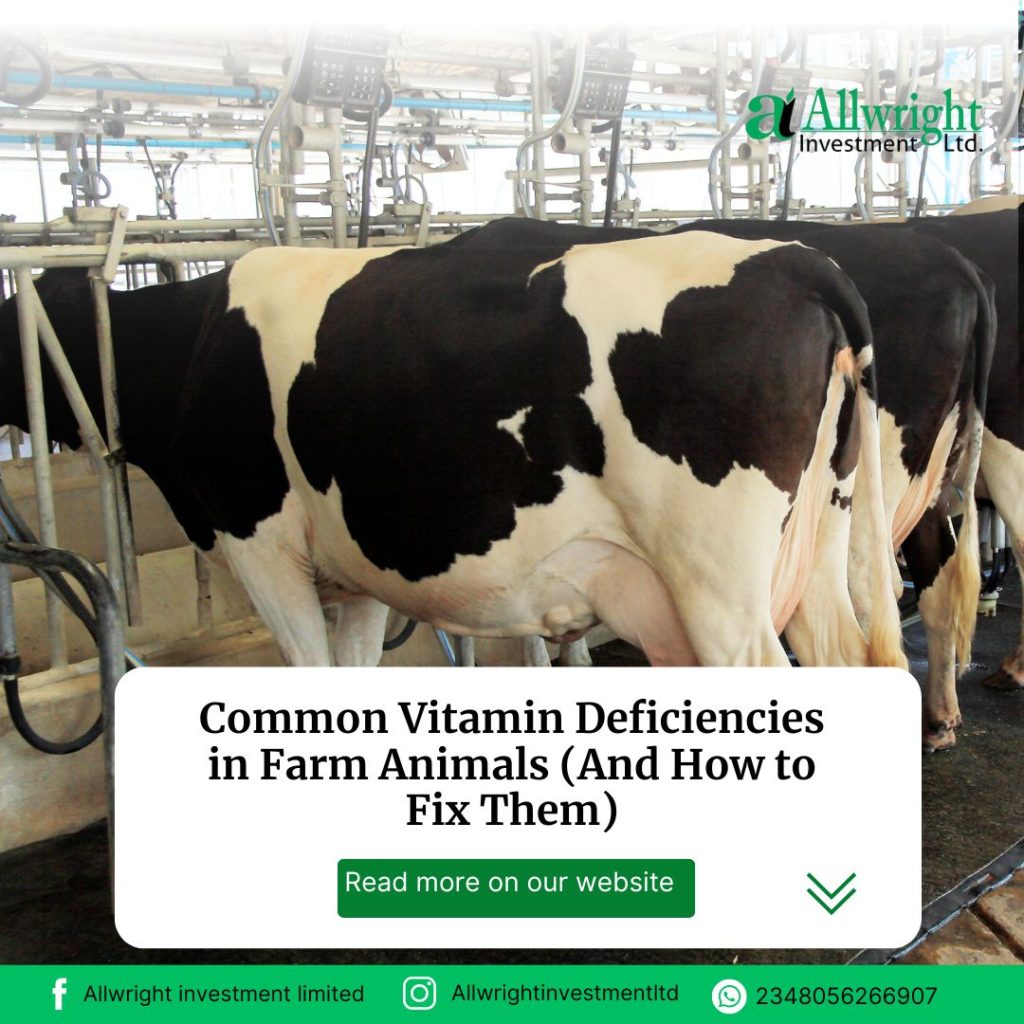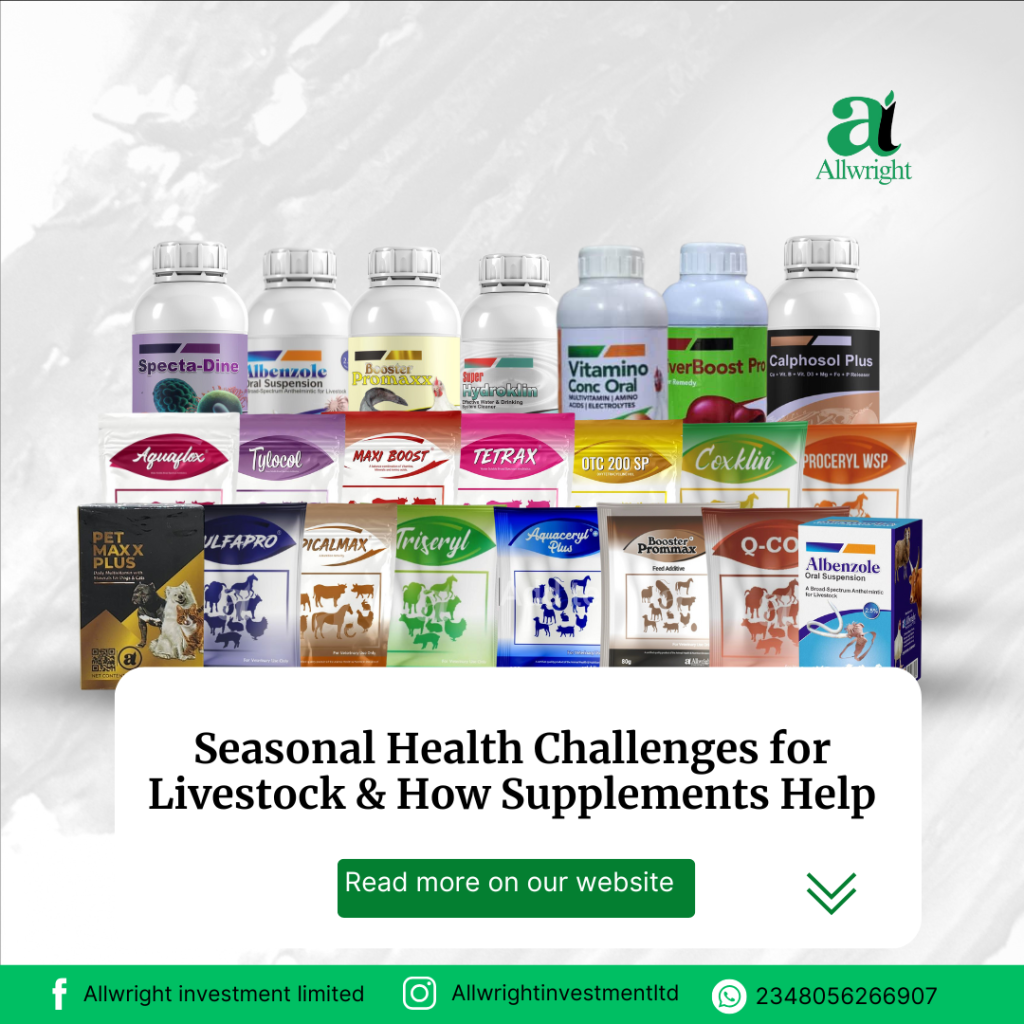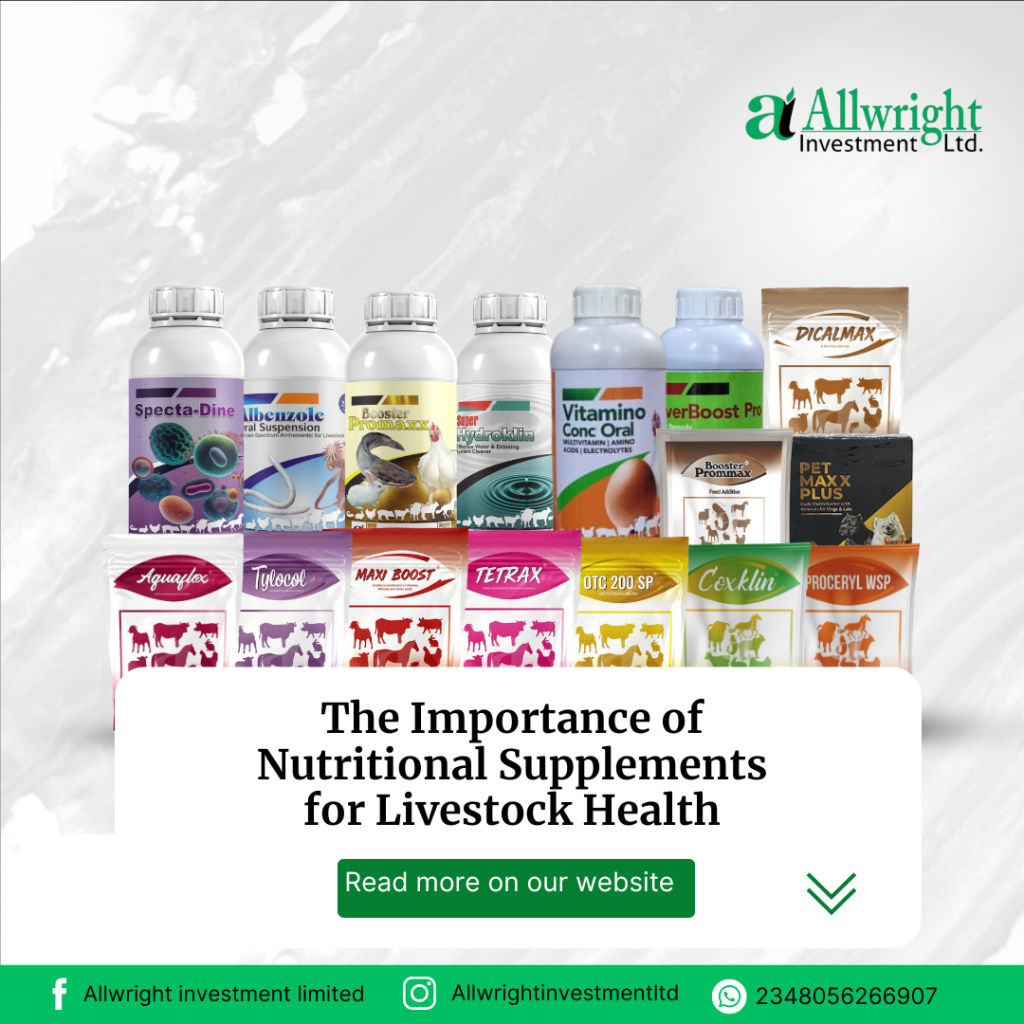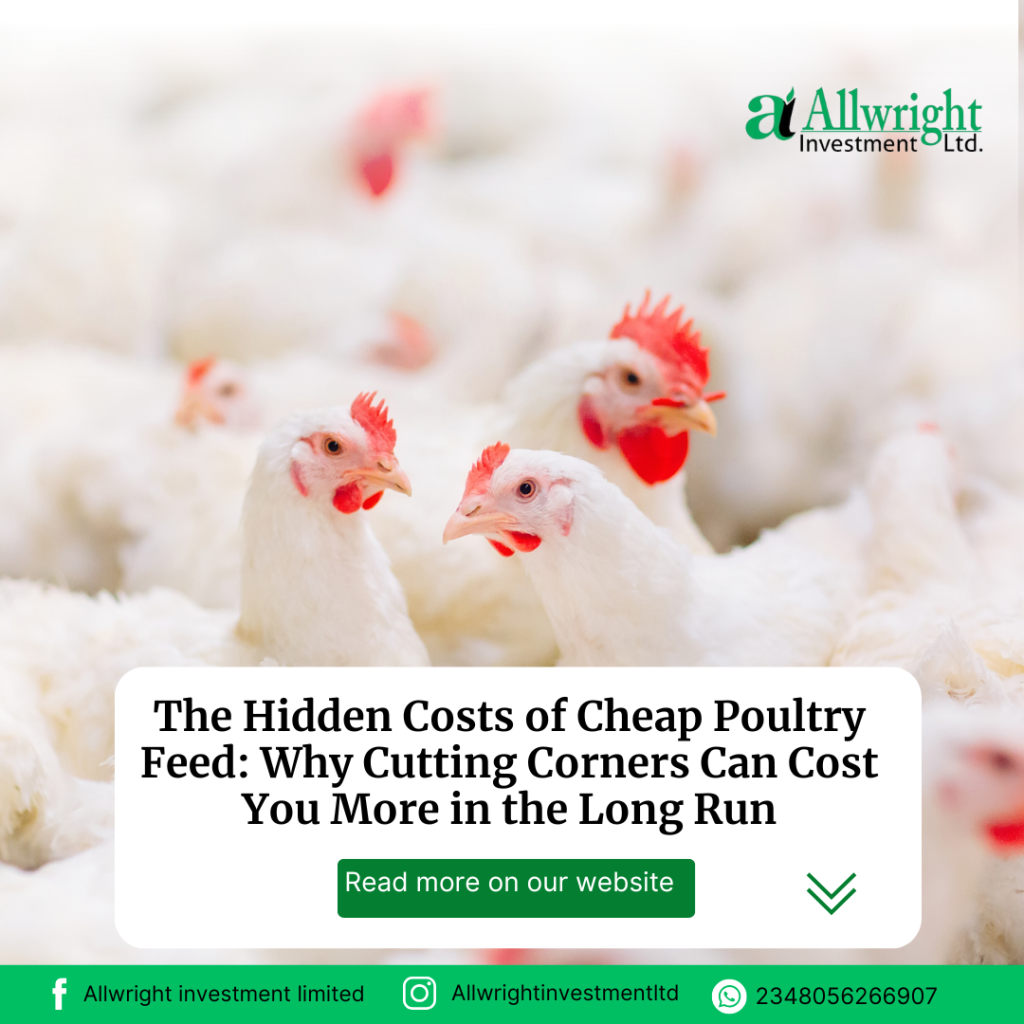5 Signs your livestock needs nutritional supplements.
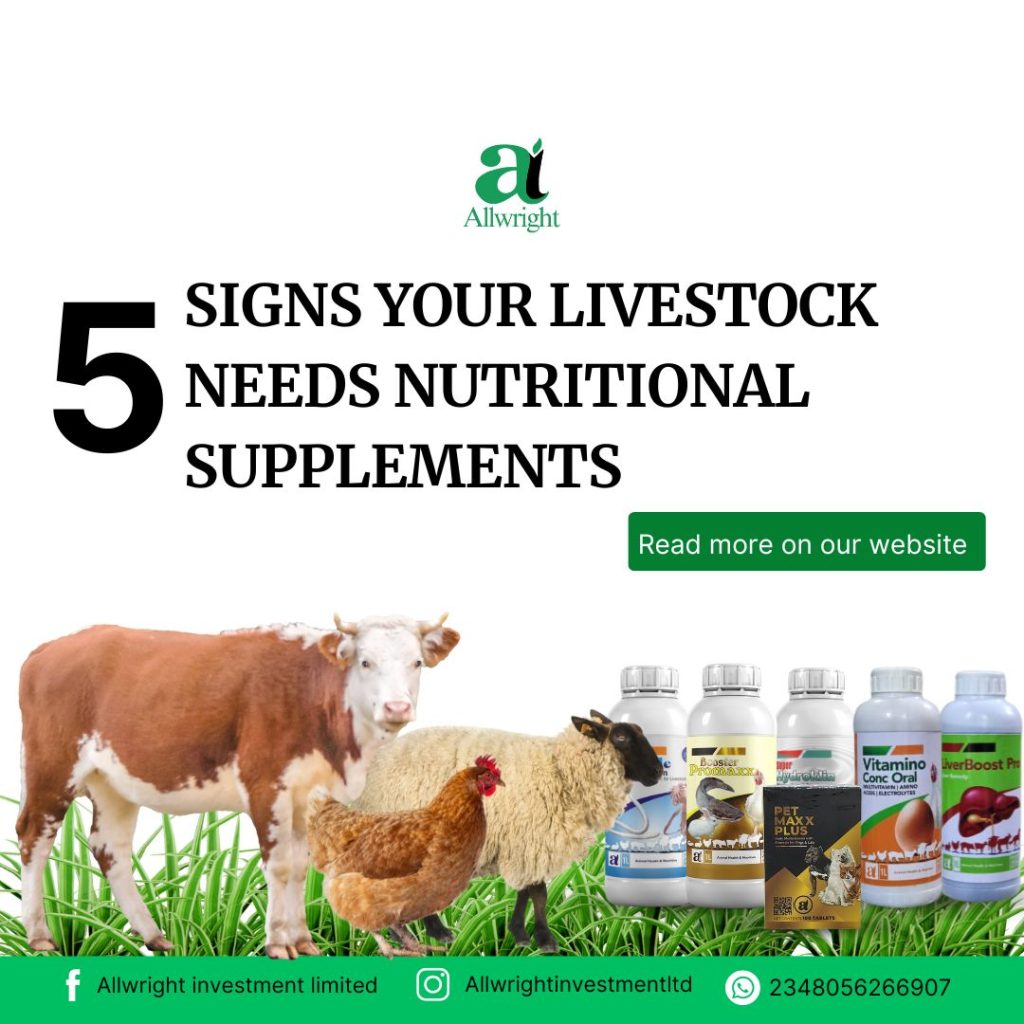
Even with good feed and care, animals can silently suffer from nutrient deficiencies that hurt their health and productivity. Catching the early warning signs can save you money on vet bills and keep your herd thriving.
Here are 5 key signs your livestock may need supplements—and what to do about it.
1. Poor Coat & Skin Conditions
What to Look For:
- Dull, rough, or patchy fur/hair
- Flaky skin, hair loss, or slow wound healing
- Excessive itching or lice infestations
Likely Deficiencies:
✔ Zinc, copper, or omega-3 fatty acids (essential for skin health)
✔ Vitamin A or B vitamins (needed for coat shine and repair)
Solution:
- Provide a mineral lick with zinc & copper
- Add flaxseed or fish oil for omega-3s
2. Low Energy & Weakness
What to Look For:
- Lethargy, slow movement, or reluctance to graze
- Muscle tremors or stiffness
- Poor weight gain despite adequate feed
Likely Deficiencies:
✔ Vitamin E & selenium (prevents white muscle disease)
✔ Iron or B12 (combats anemia)
✔ Electrolytes (sodium, potassium) if dehydrated
Solution:
- Use a vitamin E + selenium injectable
- Offer free-choice salt & mineral blocks
3. Reduced Fertility & Reproductive Issues
What to Look For:
- Low conception rates or miscarriages
- Weak, undersized newborns
- Poor sperm quality in breeding males
Likely Deficiencies:
✔ Selenium & vitamin E (critical for reproduction)
✔ Phosphorus & iodine (affects hormone balance)
Solution:
- Supplement with breeding-specific minerals 3 months before mating
- Test soil for selenium levels and supplement if needed
4. Digestive Problems & Poor Feed Efficiency
What to Look For:
- Diarrhea or scours (especially in young animals)
- Bloated stomachs or irregular manure
- Eating dirt or chewing wood (pica behavior)
Likely Deficiencies:
✔ Probiotics & prebiotics (gut flora imbalance)
✔ Cobalt (for B12 synthesis in ruminants)
✔ Magnesium (prevents grass tetany)
Solution:
- Add probiotic supplements to feed
- Provide trace mineral blocks
5. Frequent Illness & Slow Recovery
What to Look For:
- Animals get sick more often (respiratory infections, mastitis)
- Wounds or infections take longer to heal
- High mortality in young stock
Likely Deficiencies:
✔ Vitamin C & D (immune support)
✔ Copper & zinc (antibacterial properties)
Solution:
- Boost vitamin C in water during stress periods
- Use immune-supportive herbal blends (e.g., echinacea)
When to Test for Deficiencies?
If you notice multiple signs or unexplained herd-wide issues:
🔬 Forage analysis – Checks nutrient levels in feed
💉 Blood tests – Identifies vitamin/mineral imbalances
🩺 Liver biopsies (for long-term nutrient status)
Prevention is Cheaper Than Treatment!
✅ Always provide clean, balanced feed
✅ Offer free-choice minerals (animals self-regulate intake)
✅ Adjust supplements seasonally (e.g., extra magnesium in spring)
At Allwright limited, we offer targeted livestock supplements to fix deficiencies fast. Shop our bestsellers today.

